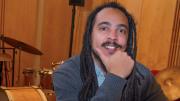A $10-million gift of funds for current use, to be expended during the next five years, has bolstered the Kennedy School of Government (KSG) early in David T. Ellwood's deanship, which began July 1 (see "Mr. Inside," July-August, page 63). The donor, David M. Rubenstein a Duke alumnus who cofounded and is managing director of the Carlyle Group, a Washington-based private equity firm called the school "among the most important assets this country has" for its leadership training, research, and impact on public affairs worldwide. Citing the low compensation of public servants in the United States compared to those in other nations and in other professions, Rubenstein said KSG graduates were "undertaking a great burden for our country" and are owed a great deal in return.
The announcement was preceded by a panel on "Inspiration to Impact: Ideas That Really Matter." Ellwood talked about how his research on public assistance and joblessness how to "make work work for people" led to the Clinton administration's welfare reform (for an assessment by KSG scholars see "Forum," page 34). Researcher Juliette Kayyem described how her work with Ames professor of law Philip B. Heymann and others on legal methods of terrorism-related interrogation took on urgent importance after the disgraceful disclosures from Abu Ghraib prison last spring. President Lawrence H. Summers recalled his 1998 meeting, as Secretary of the Treasury, with China's premier during the Asian financial crisis. After an exchange of banal pleasantries, Summers said, he was surprised to find himself questioned on technical points of international finance and foreign exchange an indication of how powerfully sound ideas from basic research can affect mainstream policy.
Rubenstein's gift, Summers said, reflects the "generosity of an individual who recognizes the importance of good ideas" and so is willing to act "in support of excellence." Said an elated Ellwood, "We now have an opportunity to invest in ourselves," because the funds won't be used "to pay old bills or keep the lights on."
In a subsequent interview, Ellwood indicated that his highest priority would be using the new funds to "attract more world-class faculty." The new money can help fund named chairs that are not fully financed, and begin the process of replacing the school's "founding fathers," like the late Richard Neustadt. (Rubenstein separately paid to renovate a classroom, now named for Neustadt, at One Eliot Street; the building itself will be renamed to recognize Rubenstein.) At least $1 million will go to replenish the school's strained loan-forgiveness program for students in low-paying careers a "downpayment," Ellwood said; such aid has been cut in recent years as the school eliminated budget deficits. He also plans start-up funding for new programs linking KSG to the College and the law and business schools. Finally, there will be conferences to bring academic and public leaders to Cambridge, and send KSG scholars out into the world, and awards to highlight powerful public-policy ideas of the sort discussed by the panelists.
Although it is still early to pronounce new directions for KSG scholarship or appointments, Ellwood is clearly interested in what he called "dramatic changes in demography, population, and families," with their implications for poverty and productivity. He also envisions much more work on national security.
On this evening, though, he focused on the close connections between Summers and Rubenstein who were neighbors in Washington, and who first discussed the gift at the World Economic Forum in Davos last January and now the Kennedy School. It is, said the dean, "a wonderful way to begin."





